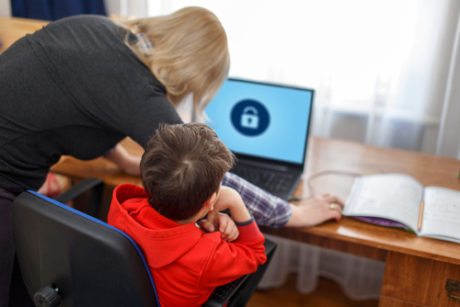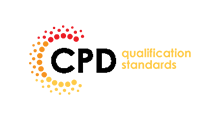Most parents are worried about child safety online and have every right to be. There have been incidents of young people, mostly young girls, who have fallen for an internet predator pretending to be a boy or girl their own age. These incidents have made the news. Needless to say that many parents are concerned about their child’s safety when online. In addition, they also are worried about images and websites that are out there that they might not want their child exposed to. Fortunately, there are ways that a parent can make the internet safer for their children.
Young Children And Internet Safety
Parental controls will allow you to filter what your young child sees when they go online. There are sites that are created for children to use where they can play games. Children can also find out information that they need to do homework when using the computer. There are three things that a parent needs to do when it comes to letting children younger than 13 on the computer:
- Learn to use parental controls
- Teach their children about internet predators
- Supervise the use of the computer
Parental Controls
Just about every computer today is equipped with child safety features. These parental controls can block explicit sites and images from the computer when the child is using it. You simply set the parental controls to block these sites and images and they will not allow the child in. You should have a password that you can use to access the parental controls that the child does not know. While younger children will not usually want to explore things that are off limits, older children may be curious and want to go on sites that may not be for them.
Many websites today are featuring a safety feature that makes those who post images or text declare if it is explicit content. This feature is used on many sites, although not at all. As children get older, they want to go on MySpace, Facebook or Twitter. These sites do not screen out explicit content. Parental controls can prevent a child from visiting these sites and setting up an account. You can even manage parental controls so that you block certain sites from the computer. Children who are younger than 13 have no business using social networking sites that are created for older children. They are not yet mature enough to realize the implications of putting personal information out there for the world to see.
I used parental controls on the computer until my kids were 13. They used the computer for homework and had sites that they liked to visit. After they were 13, I gave them a little bit more freedom on the computer, but still kept the adult websites off. When my kids were 16, I took off all parental blocking. My son promptly downloaded “free music files” online and got a virus on the computer from these files. I will talk about viruses in a later chapter.
The parental controls worked well for me, but I certainly didn’t rely on them to protect my children when they were online. After all, there were many sites that they visited that were for children and featured chat features that were perfectly acceptable, according to the parental controls. These controls are a great tool when it comes to keeping a child safe online. But they should not be the only tool that a parent uses.
Education
Teach your children about internet predators. It is still amazing to me that parents do not teach their children about ‘stranger danger” on the outside. From the time my kids were old enough to understand, I was constantly telling them about stranger danger. My husband said I was making them “paranoid,” but I wanted to be sure that they were safe. It was the best that I could do.
I did the same thing when they went on the internet. I always made it clear to my kids that they didn’t really know who they were talking to when they were online. I gave them concrete examples of how predators would behave. That they would pretend to be a person of their own age and post information that a young person wants to hear.
Education is necessary for all young people who go online. The same education should also be used for adults. Those who prey on children online do not seem like child molesters or worse online. They do not hang out in adult chat rooms looking for kids. They go where children go – in their chat rooms and websites. And they pretend to be children.
This is why it is important for parents to also educate their children when they are online as well as use parental controls. Parental controls may stop a child from entering an adult site, but there are plenty of sites online where kids can interact with one another. These are supposed to be for children only, and those who are adults and pose as children are violating internet safety laws. However, it doesn’t stop adults from violating those laws.
Educate your children about the fact that it is very easy for anyone to develop a false persona online. They can use fake photos of themselves and pretend to be whoever they want.
Small children should not be chatting at all when they are online. They cannot understand the concept of someone pretending to be another person. Only allow your children to chat online when they understand the following:
- That anyone can pretend to be anyone they like online
- That fake photos and names are often used online
- Never to reveal any information about themselves
- Never agree to send a photo of themselves to someone
- Never agree to meet someone online
This still does not protect your child totally from online predators. As anyone with children knows, they do not always do what you ask. It is important for parents to not only use parental controls and education to keep their children safe but also supervision.
Supervision
Do not let your kids use the computer unsupervised until they are mature enough to understand how to stay safe online. Children under the age of 13 should not have computers in their rooms and should not be using them unsupervised. This does not mean that you have to be looking over your child’s shoulder the entire time they are online, but that the computer stays in the family living space of the home.
Many parents feel that because they have told their children about predators and have installed parental controls on their computers that their children are free to roam around online. They can enter chat rooms and go on forums where there are “moderators” for these sites. This is not true. Let me tell you how easy it is to be a “monitor.”
A website monitor often works for free or for a free service. When AOL first came out, it cost $23 a month to get online (this was with a dial-up connection) and they looked for monitors for their chat rooms. In exchange for being a monitor, you received a free membership. I signed up to be a monitor. I only had to give them my name and email address and I was in. No background check. No authenticity required. If someone tries hard enough, despite more controls that websites are using, they can become a monitor for a forum or chat room. There is no formal interview and all is done over the computer. Parents should not entrust their children to website “monitors” who may or may not be who they say they are.
After children are old enough to have computers in their rooms and have a bit more freedom online, parents should still know what is going on. As they get older and prove to be more trustworthy when it comes to using the internet, as well as personal choices that they make in their lives, then you can loosen up a bit. But you should still watch their internet usage.
Many of the young people who fall prey to internet predators do so because they are lonely and have few friends. They spend an inordinate amount of time in their rooms on the computer where they meet “friends.” It is important for parents not only to be supervisory of their children’s internet activities but also to watch how much time they are spending on their internet “friends.” Internet friends should not take the place of the real world. If a child is spending all of their time on the computer and not participating in real-world activities, something is wrong.
Parents should also remind their children, even older children, of the fact that anyone can be watching what they are doing online. While they may think that it’s fun to post pictures of themselves drinking at a party on their Facebook page when they are 17, it may end up coming back to haunt them. Remind kids that the internet is public domain. Anyone can see what they are up to on such sites. Including college administrators and prospective employers. Kids do not often understand the repercussions that can occur from simply posting a picture of themselves online.
Internet security is crucial for any parent. Make sure that you have adequate software that supports parental controls and that you also use education and supervision in order to make sure your kids are safe online.





-
Add a note